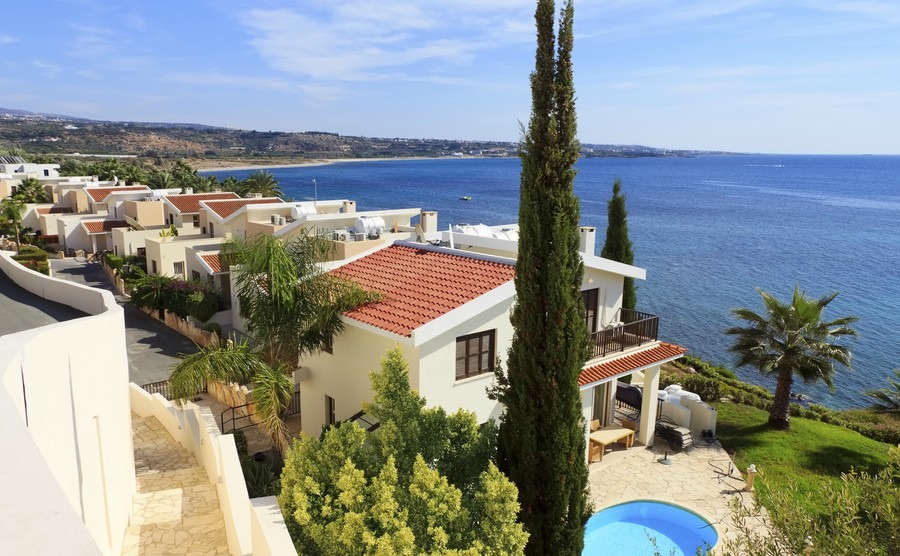Renting before buying overseas gives you the chance to really get to know your chosen destination. You can assess everything from the beach to the local bakery, as well as your potential social life, while searching for your perfect Cypriot home.
Everyone knows that lucky couple who can do no wrong: the new-born baby sleeps through the night, they love their impossibly high paid jobs, they fall in love with the first property they visit on their viewing trip and have their first offer accepted. Annoyingly they’re also the loveliest people and it couldn’t happen to anyone nicer.
Renting is a great way to view properties at your leisure and get a feel for living in your chosen destination.
For the rest of us back home packing our bags ready to head off to Cyprus in search of a home in the sun, preparation is key. And this includes making sure we have somewhere to stay, while we view all those wonderful properties. Whether it’s a short-term rental where you can rest your head when visiting villas or ambling round apartments, or a long-term rental that allows you to immerse yourself in the local area before buying, renting is a great way to view properties at your leisure and get a feel for living in your chosen destination.
Find homes in Cyprus via our property portal.
Supply of rental property
Thanks to a healthy tourism industry– a record 3.2million tourists visited the island last year alone – there is a plentiful supply of rental properties, as people try to cash in on this army of sun seekers. These conditions make it relatively straightforward to find and rent an apartment or house in Cyprus. The majority of properties are advertised on a short to medium-term rental basis, with an obvious surplus of rental properties available during the winter months when visitor numbers diminish.

A rental property by the sea might be a little more expensive but would provide a good idea of life in Cyprus
Deposit and bills
This process is much the same as it is in the UK. For longer-term rentals – over six months – landlords generally require the tenant to pay a deposit totalling the equivalent of one month’s rent, plus one month’s rent in advance once the contract has been signed. The landlord will refund the deposit once the contract expires, unless they see fit to withhold part or all of it to cover any damage. As the tenant you are likely to be responsible for payment of the utility bills: water, electricity and heating.
For short-term rental – under six months – the rent invariably includes all utilities and is often paid in advance of moving in.
Cost of renting
It’s that old property cliché but the amount of rent a landlord can charge really does depend on location, location, location! Rents tend to be more expensive in the capital Nicosia and expat favourite Paphos. Despite rental prices typically being lower in Larnaca and Limassol, the later has seen rapid price rises recently, with large-scale developments attracting a wealthy expat population.
Be prepared to try your hand at negotiating a price with landlords, some of whom may be willing to offer a discount on the advertised price.
The amount a landlord can charge also depends on seasonality, seasonality, seasonality! Ok, it doesn’t have quite the same ring to it, but the difference between peak and off-season prices can be significant.
Be prepared to try your hand at negotiating a price with landlords, some of whom may be willing to offer a discount on the advertised price. Particularly if you are looking to offer them the security of a medium to long-term contract, or plan on renting during the off-season. During the peak summer months – May to August – landlords can charge a premium for short-term rentals because they have a constant stream of clients. In the off-season – September to April – however, you may be able to strike a deal with the landlord, who will be grateful to fill the property during what is a slow period in the rental market.
Finding accommodation
Such is the demand for rental properties from tourists and overseas property buyers, rental advertisements are often printed in English in newspapers, property guides and classified newspapers. They can also be found on display in local supermarkets and newsagents. And it’s not uncommon for landlords to put a “for rent” sign in the window or on the front of their property.
Just like in the UK, most expats search for rentals via the internet using popular sites like Airbnb, or more country specific sites like https://www.prime-property.com/. This allows you to search through a seemingly endless supply of rental properties before you even land in Cyprus.

The Cyprus Buying Guide takes you through each stage of the property buying process, with practical recommendations from our experts who have been through the process themselves. The guide will help you to:









